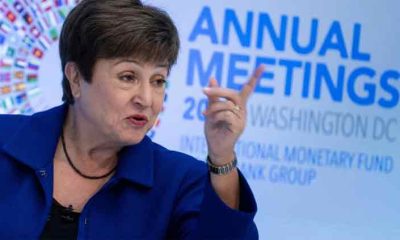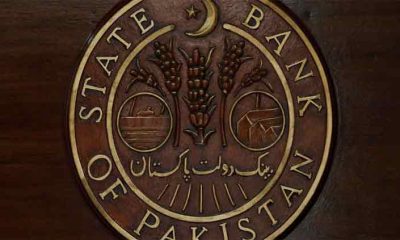The International Monetary Fund (IMF) Executive Board confirmed Friday that it had reappointed Kristalina Georgieva to serve for a second five-year term at the helm of the international financial institution.
It means that Georgieva, who was the sole candidate in the running to lead the IMF, will continue in office when her current term ends on September 30, 2024.
The decision was taken by consensus, the IMF said in a statement confirming the board’s decision.
“I am deeply grateful for the trust and support of the Fund’s Executive Board, representing our 190 members, and honoured to continue to lead the IMF as Managing Director,” Georgieva said in a statement.
“I look forward to continue serving our membership, together with the highly professional and committed staff of the IMF,” she added.
Georgieva, a 70-year-old Bulgarian, has run the IMF since 2019, and told AFP last month that she was making herself “available to serve, if people want me to serve.”
During her tenure, the IMF has helped countries facing financial difficulties during the coronavirus pandemic as well as the havoc wrought by Russia’s invasion of Ukraine, especially in Europe.
Under a controversial, decades-old agreement between Europe and the United States, the IMF has historically been led by a European, and the World Bank by a US citizen.
This arrangement was reaffirmed last year when the Biden administration nominated Ajay Banga, an Indian-born, naturalized US citizen, to run the World Bank, which sits just across the street from the IMF in Washington.
Georgieva faced allegations in 2021 – which she strongly denied – that she had been involved in amending a popular World Bank business report in order to favour China when she worked at the development lender.
But after reviewing the World Bank report into the incident, the IMF Executive Board dismissed the allegations and reaffirmed its confidence in Georgieva, allowing her to remain in post.
The announcement means that next week’s IMF and World Bank meetings of the world’s financial leaders in Washington can proceed without a distracting battle over the future of the Fund running in the background.
POTENTIAL FOLLOW-UP LOAN PROGRAMME
Pakistan is in discussions with the IMF on a potential follow-up programme to its nine-month, $3 billion stand-by arrangement, Georgieva said, adding that it had important issues to solve.
Georgieva told an event at the Atlantic Council think tank, that Pakistan was successfully completing its existing programme with the IMF and its economy was performing somewhat better, with reserves now being built up.
“There is a commitment to continue on this path, and the country is turning to the Fund for potentially having a follow-up program,” Georgieva said, flagging issues that the struggling South Asian nation still needed to address.
“There are very important issues to be solved in Pakistan: the tax base, how the richer part of society contributes to the economy, the way public spending is being directed and of course, creating … a more transparent environment.”
Pakistan and the IMF last month reached a staff-level agreement on the second and last review of the $3 billion stand-by arrangement (SBA), which, if cleared by the global lender’s board, will release about $1.1 billion to the struggling South Asian nation. The IMF’s board is expected to review the matter in late April, but no firm date has been set, a spokesperson said.
Both sides have also spoken about negotiating a longer-term bailout and continuing with necessary policy reforms to rein in deficits, build up reserves and manage soaring debt servicing.
Post Views: 10


 Fashion3 months ago
Fashion3 months ago
 Fashion3 months ago
Fashion3 months ago
 Sports3 months ago
Sports3 months ago
 Sports3 months ago
Sports3 months ago
 Sports2 months ago
Sports2 months ago
 Sports2 months ago
Sports2 months ago
 Fashion2 months ago
Fashion2 months ago






















